
Confucius Institute at DU Successfully Concludes 2025 China–South Asia Youth Exchange Week孟加拉国青年学子圆满完成2025中国-南亚青年交流周活动
2025年10月20日至11月2日,来自孟加拉国达卡大学孔子学院和南北大学孔子学院的52名青年学子,与巴基斯坦、尼泊尔、印度的青年一同参加由云南大学主办的“2025中国-南亚青年交流周暨汉语桥孟加拉国青年学生访华项目”。达卡大学孔子学院由中方教师董小丽带队,学员们收获满满,圆满完成了两周的学习交流任务。
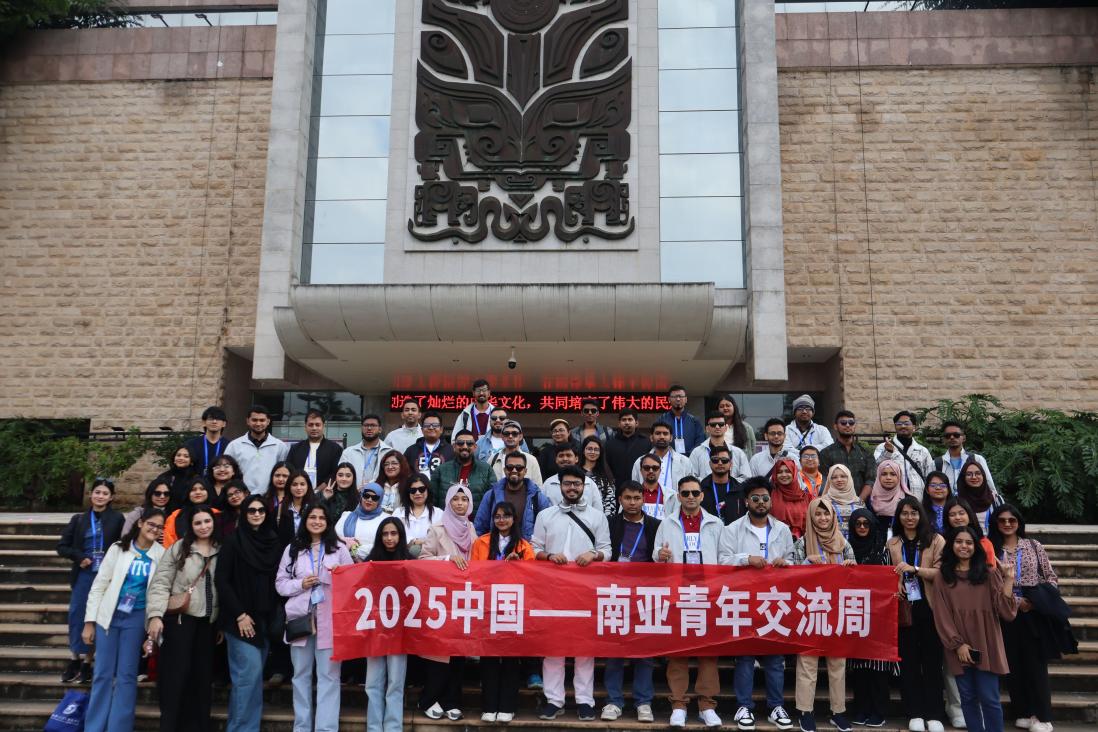
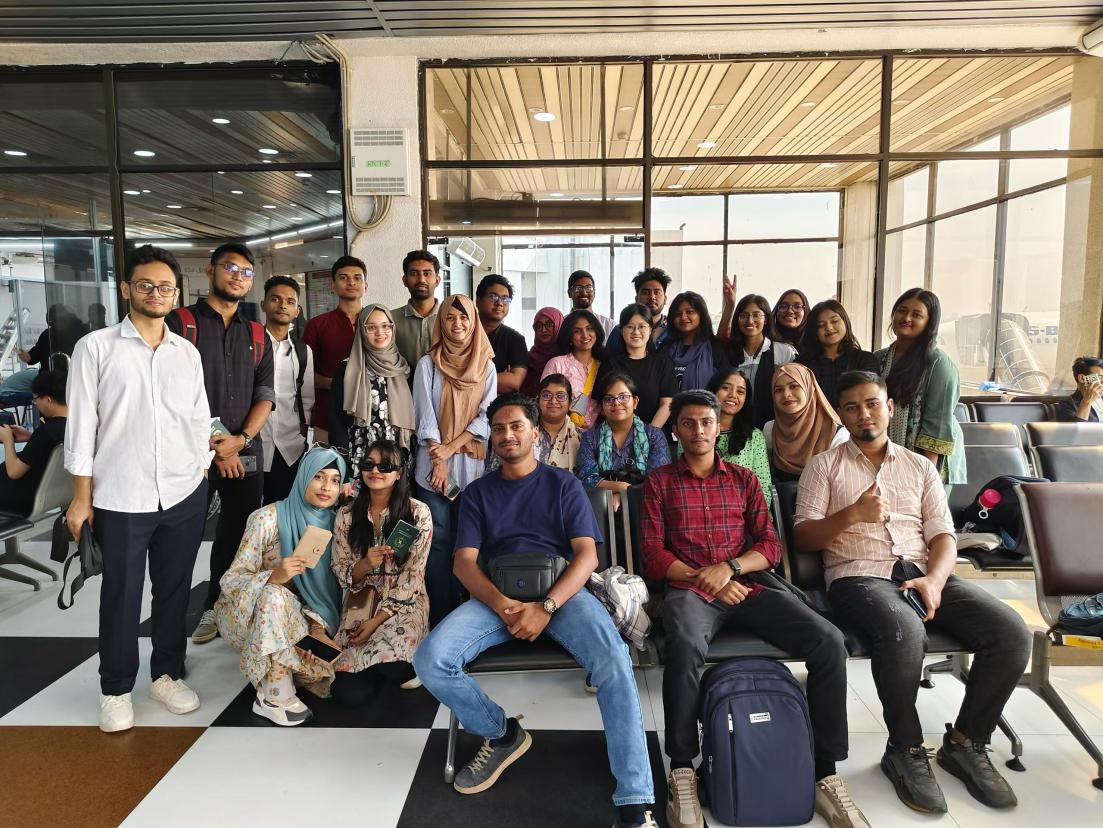
在云南大学两个校区,学员们参与了“茶文化体验”“中国民俗趣谈”“中国-南亚关系”“中国高等教育”“人工智能互动实践”等主题课程,深入了解中华传统文化与现代科技的融合。期间,他们还参观了云南省民族博物馆、海洪湿地公园、昆明老街、螺狮湾和建水古城,从不同角度领略云南丰富的历史文化底蕴和多彩的民族风情。
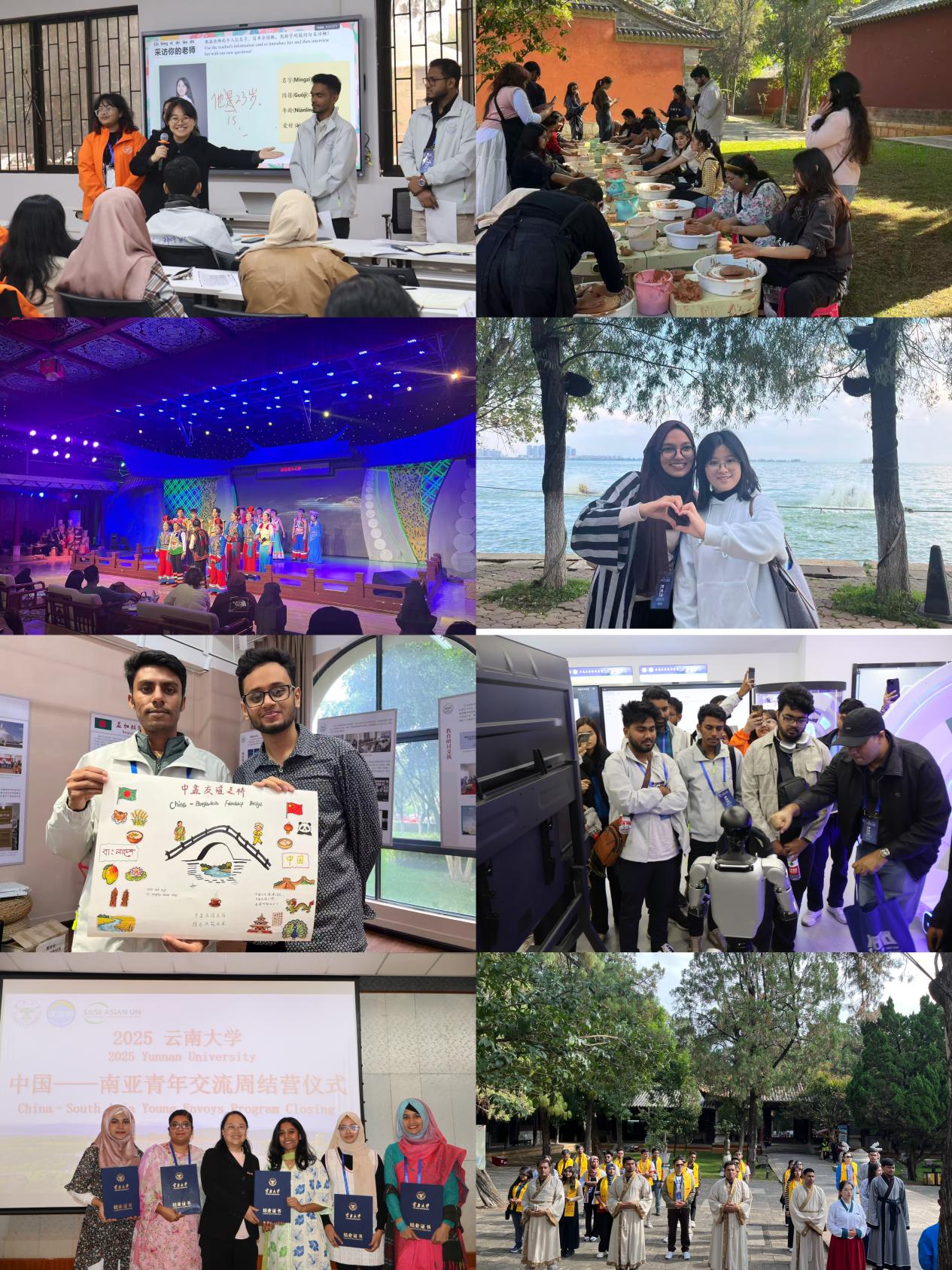
在交流活动中,来自不同国家的青年学子通过密切合作与互动,建立了深厚的友谊。许多学员表示,此行不仅加深了对中国的了解,也激发了他们学习汉语和中华文化的热情。一些达卡大学的学员表示,未来希望赴中国高校深造,也期待再次访华,探索更多中国城市与人文故事。
为深化学习交流成果,达卡大学孔子学院在交流团返回达卡后举办了专题分享会。参加交流营的学员们分成四个小组,围绕在华见闻,分别从文化体验、学术收获、社会观察与个人成长等不同角度,生动分享了他们在中国的学习心得与交流感悟。他们的讲述不仅再现了在中国的难忘时光,更以亲身经历极大地鼓舞了在场同学,激发了大家持续学习中文、深入了解中国文化的浓厚兴趣与坚定决心。
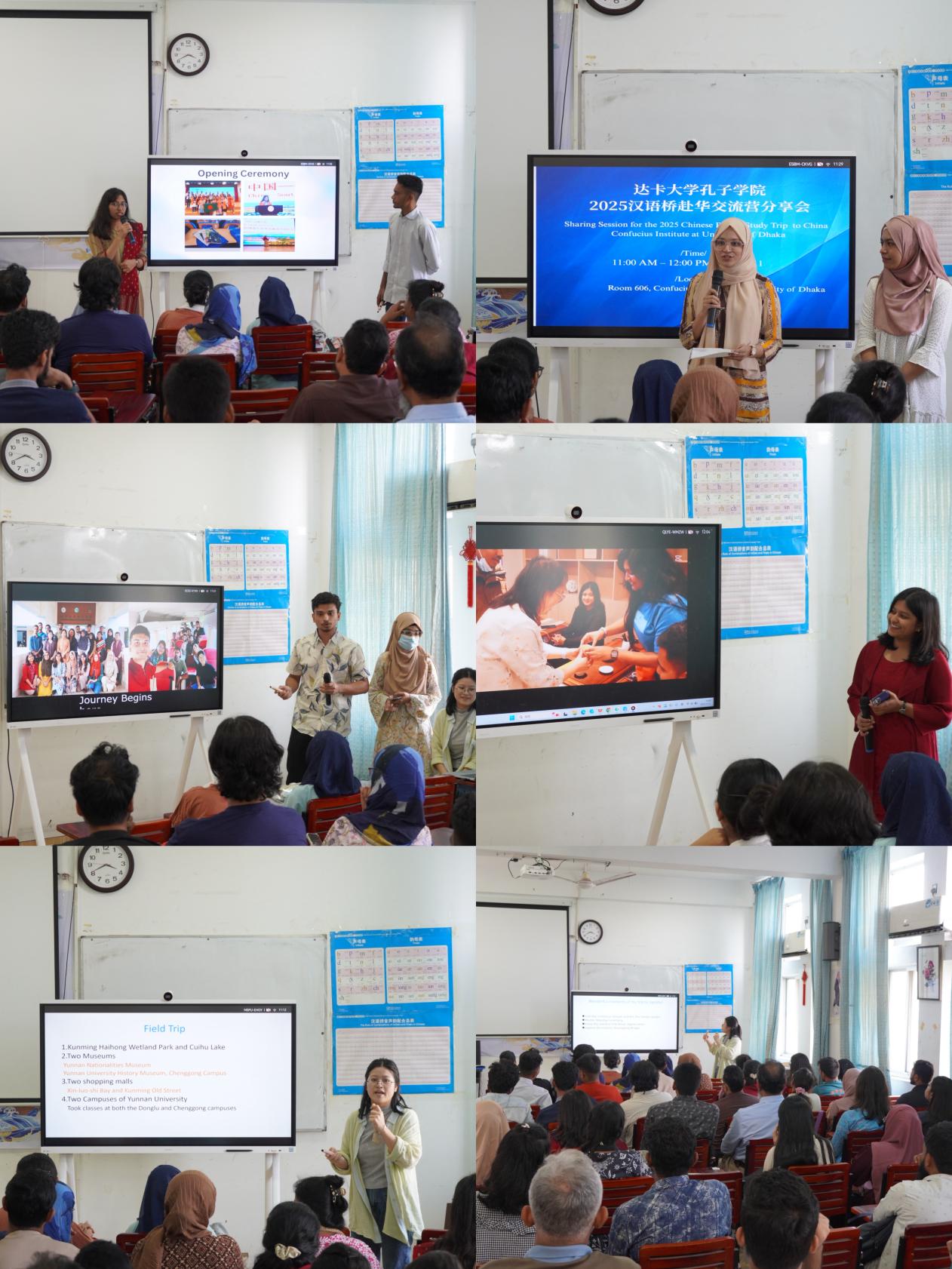
这次跨文化交流不仅加强了中国和南亚青年之间的理解与合作,也为孟加拉国青年打开了认识中国、走近中国的新窗口。达卡大学孔子学院将继续推动中孟青年间的友好交流,携手中孟青年共同探索合作与发展的未来。
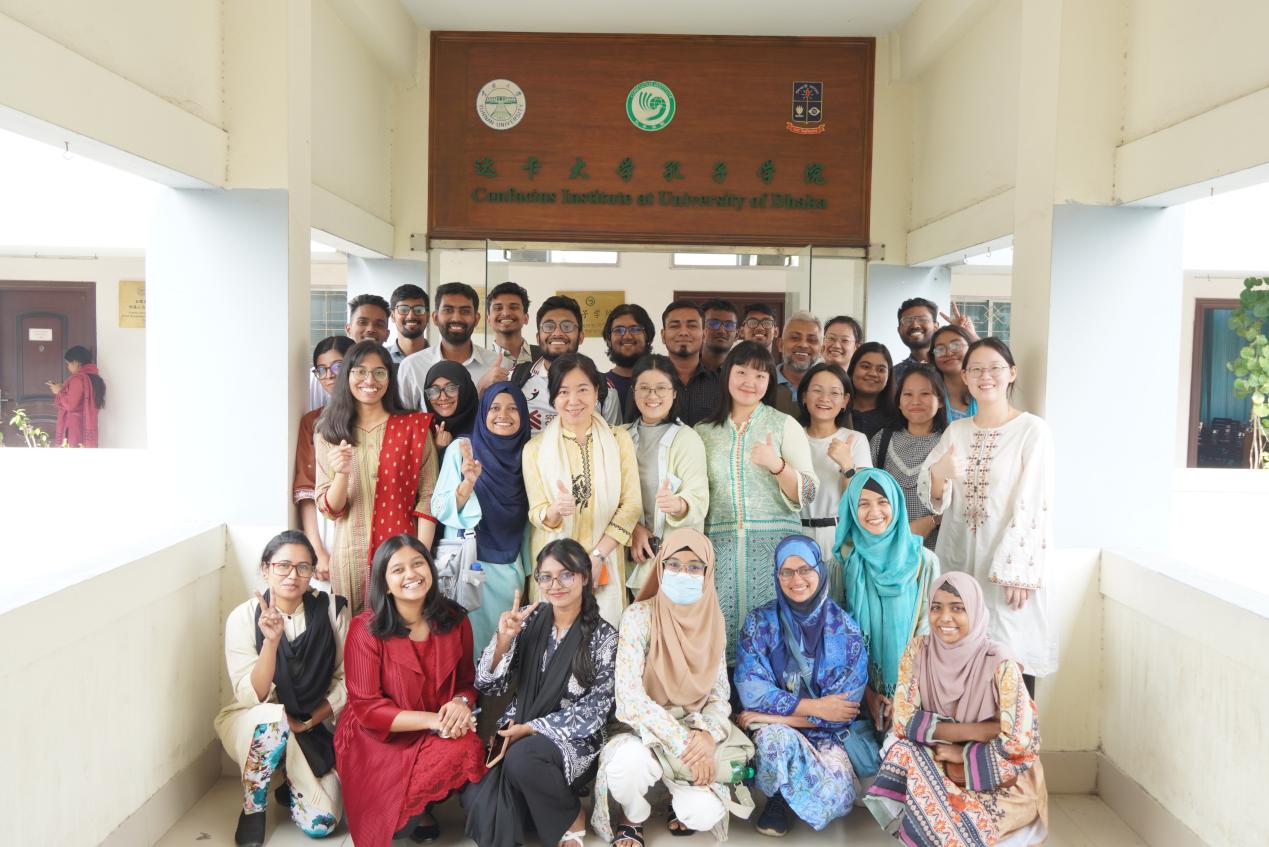
From October 20 to November 2, 2025, 52 young students from the Confucius Institute at the University of Dhaka and the Confucius Institute at North South University, participated alongside youth from Pakistan, Nepal, and India in the "2025 China-South Asia Youth Exchange Week & Chinese Bridge Bangladeshi Youth Student Delegation Program," hosted by Yunnan University. The delegation from the Confucius Institute at University of Dhaka was led by Chinese teacher Dong Xiaoli. Over the course of two weeks, the participants engaged in fruitful exchanges and successfully completed the program.
During their stay, the students attended multi-thematic courses such as Tea Culture Experience, Interesting Chinese Folklore, Chinese Higher Education, China-South Asian Relations and AI Interactive Practice at two campuses of Yunnan University, gaining a deeper understanding of the integration of traditional Chinese culture and modern technology. The itinerary also included visits to the Yunnan Nationalities Museum, Haihong Wetland Park, Kunming Old Street, Xin-luo-shi Bay wholesale market, and Jianshui city, allowing them to appreciate Yunnan's rich historical heritage and diverse ethnic culture from various perspectives.
Throughout the exchange, the young participants from different countries developed strong friendships through close collaboration and interaction. Many noted that the program not only deepened their understanding of China but also sparked a greater enthusiasm for learning the Chinese language and culture. Several students from the University of Dhaka expressed interest in pursuing further studies at Chinese universities in the future, as well as a desire to revisit China to explore more of its cities and cultural stories.
To deepen the outcomes of the learning exchange, the Confucius Institute at University of Dhaka held a themed sharing session after the delegation's return. Four groups of participants shared their experience and study outcomes. With the successful conclusion of the program, this cross-cultural exchange has not only enhanced mutual understanding and cooperation among youth from China and Bangladesh but has also opened a new window for Bangladeshi youth to better understand and engage with China.